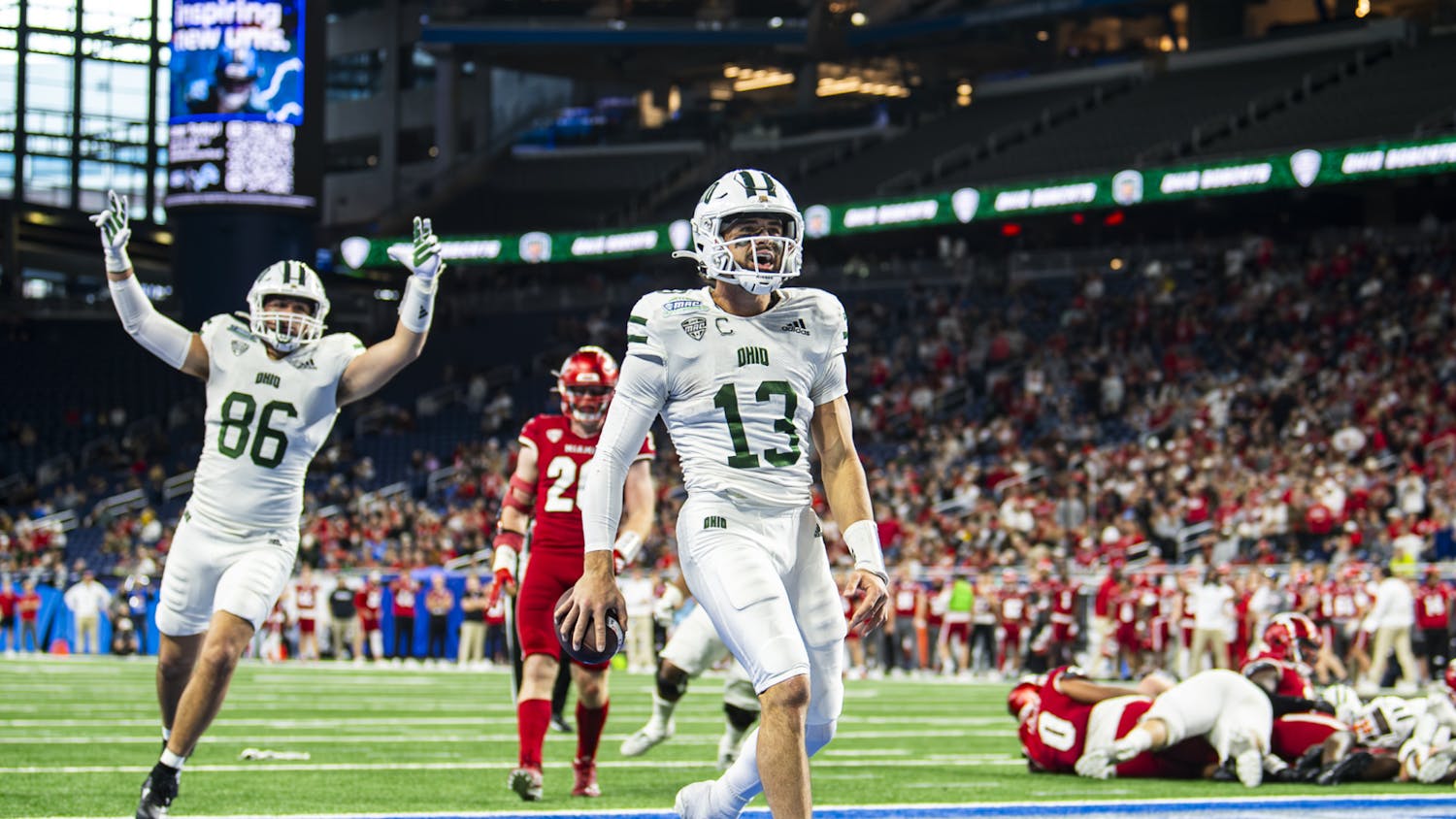It’s not uncommon for the lobby of Glidden Hall to buzz with students and faculty collaborating on their work and sharing their passion on any given day. However, an especially electric energy overtook the School of Music on Sept. 20 and 21 for Ohio University’s first electroacoustic music festival, Click Fest.
One of the festival’s organizers was Robert McClure, an associate professor of composition and theory. OU has hosted three different festivals in the past three semesters, but always for an outside organization, according to McClure.
“The students and I thought… why don’t we start our own that we’re in control over and we get to set the tone and feature the pieces we think are cool,” McClure said.
The genesis of Click Fest occurred when the school put out a call for work at the end of last semester. Approximately 200 electronic pieces were submitted and about a quarter of them were accepted to the festival, according to McClure.
“You’re going to have pieces that have surround elements to the audience, some pieces feature live instrumentalists that are either playing with electronic tracks or the computer is taking their sound and modifying it somehow … it’s going to be a really diverse program,” McClure said.
The festival was a collaborative effort across the composition department with students making sure everything ran smoothly, and getting a front-row seat to the weekend's events as an added bonus. Zoe Daugherty is a junior studying music composition and worked on the lighting of the concerts.
“I see them all (the concerts) through the little pinhole, but a lot of them don’t have performers necessarily,” Daugherty said. “They’re fixed media so they come in through the speakers, it’s more of an auditory experience.”
Other OU affiliates of the festival were the co-host, T.R. Beery, the featured performers and the keynote speaker, Kelli Smith Biwer. Biwer’s speech covered elements of her research on the development of electronic music in the mid-20th century.
“She’s giving a lecture on 1950s hi-fi and how haptic and auditory responses from the devices we use on a daily basis … changed over the decades,” McClure said.
While many OU students and faculty were involved in the festival, most of the performers came from outside the university. According to Rose Safford, a fifth year studying music composition, this opens doors for students to expand their professional communities.
“I really enjoy doing these kinds of conferences, meeting a bunch of other musicians with similar interests and expanding my network and all of our networks,” Safford said.
Safford has experienced past conferences and festivals hosted by the School of Music and believes working those events turned the department into a well-oiled machine with a smooth rhythm and the ability to run their own unique event.
“It feels like we have more ownership of it … and feeling like we are starting our own community within the electronic music community,” she said.
Safford enjoyed seeing the quality of the electronic music at the festival, and, according to Daugherty, the general feedback on the event was “pretty positive.” However, McClure recognizes the unusual nature of the festival for people unfamiliar with the core genre.
“(I hope) anyone who is maybe coming into the world of electronics for the first time … (will) hear or see something that they never considered … music, that they hear sounds that just excite them and maybe make them ask questions,” McClure said.
Like Safford, McClure is intrigued by the quality and innovation of the Click Fest music, describing some of the submissions to the festival as “cutting-edge new stuff.”
“This kind of music is better understood in the context of sound design for movies where any sound could turn into any other sound, and in this case, we’re taking any sound and we’re turning it into musical ideas,” McClure said.






